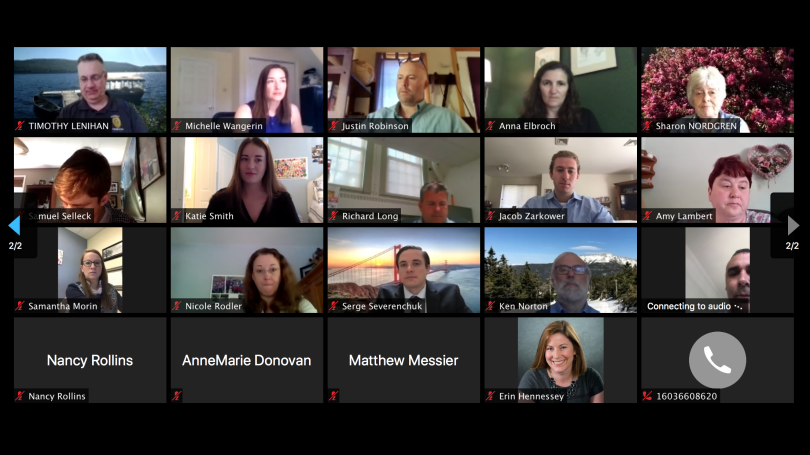
- Public Policy
- Leadership
- Funding
- News & Events
- About the Center
Back to Top Nav
Back to Top Nav
Back to Top Nav
Back to Top Nav
Two groups of Class of 1964 Policy Research Shop students recently testified before committees in New Hampshire and Vermont remotely over Zoom.
The first Zoom testimony occurred on May 22 when PRS students Sam Selleck, Katie Smith, and Jacob Zarkower presented their findings in “Juvenile Justice System Spending in New Hampshire and across the United States,” PRS Policy Brief 1920-09, to the NH Juvenile Justice Working Group and the NH Office of the Child Advocate.
Their team began work on this project in the fall as they met as a group weekly to discuss their work. This spring they moved to working remotely. Jacob Zarkower said, “At our weekly zoom meetings, the four of us discussed flaws to be targeted the following week, in addition to checking in on each other. This was truly a team effort, and I am excited to see the impact our work can have on the youth and families of New Hampshire.” After the committee meeting, which was attended by over 30 people, Sam Selleck shared, “It was definitely rewarding to have the chance to present our research today to the people at the forefront of juvenile justice reform in New Hampshire.”
Class of 1964 Policy Research Shop students Namrata Ramakrishna, Emery Rheam, and Blake McGill testified before the Vermont State Committee on Economic Development, Housing and General Affairs via Zoom on Thursday, May 28. Committee Chairman Michael Sirotkin welcomed the students and Professor Ron Shaiko to the committee. Namrata, Emery, and Blake then presented their findings from their report, “Short-Term Rental Units: Regulations and Impacts in Vermont,” PRS Policy Brief 1920-08.
The students, utilizing statewide rental data collected from Airbnb, analyzed the rental patterns across the state, the potential revenues generated to the state, and the disparate regulatory treatment of owners of Airbnb rental units compared to owners of traditional hotels, motels, bed and breakfast establishments, and inns. Following their presentation, the students responded to questions from the chair and from committee members.